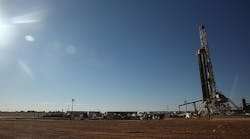The U.S. Department of Labor today issued a final rule on respirable silica dust.
The rule, which will limit worker exposure to respirable crystalline silica, has been a long time in the making, with proponents working for decades to increase protections for workers.
The new rule updates regulations established in 1971 and goes a long way in protecting workers from the hazards of silica exposure – lung cancer, silicosis, chronic obstructive pulmonary disease and kidney disease.
“Today, millions of workers can breathe easier. This victory will help stop preventable illnesses and deaths. Preventable: that is the key word,” AFL-CIO Secretary Treasurer Liz Shuler said during an event Thursday at the International Masonry Institute in Bowie, Md.
The new rule establishes two standards – one for general industry and maritime and one for the construction industry – and limits exposure to an 8-hour time-weighted average of 50 micrograms of respirable crystalline silica per cubic meter of air.
“There’s no substitute for a national standard,” U.S. Secretary of Labor Thomas Perez said.
The new protections annually will save more than 600 lives and prevent more than 900 new cases of silicosis – a chronic lung disease caused by the inhalation of silica particles – the Department of Labor estimates.
“I’m sorry it took this long,” Perez said, directing his attention to Tom Ward, a masonry trainer from Woodhaven, Mich., who saw his father die at a young age from silicosis. “It wasn’t for want of trying.”
Ward, who was featured in a labor department video on silicosis, said he was surprised to find when he started working as an apprentice that workers were still being exposed to the same hazards that had eventually killed his father when he was only a child.
“Silica, the silent killer, can no longer fly under the radar. It can kill no more,” Ward said.
Under the new standards, employers will be expected to cut worker exposures in half in general industry and by five times in the construction field. That will protect an estimated 2.3 million employees who work in fields like construction, brick manufacturing, foundries and hydraulic fracturing, OSHSA says.
And most employers will be able to meet compliance by using equipment found at local hardware stores, he said. Generally, exposure to silica can be limited by using water to minimize dust or by using a ventilation system to catch dust.
“This is not rocket science and it’s not cost prohibitive,” Perez said. “Let’s face it, folks. The evidence is overwhelming. The science is there. Our job is to follow the science…Today the public policy is catching up to the science.”
